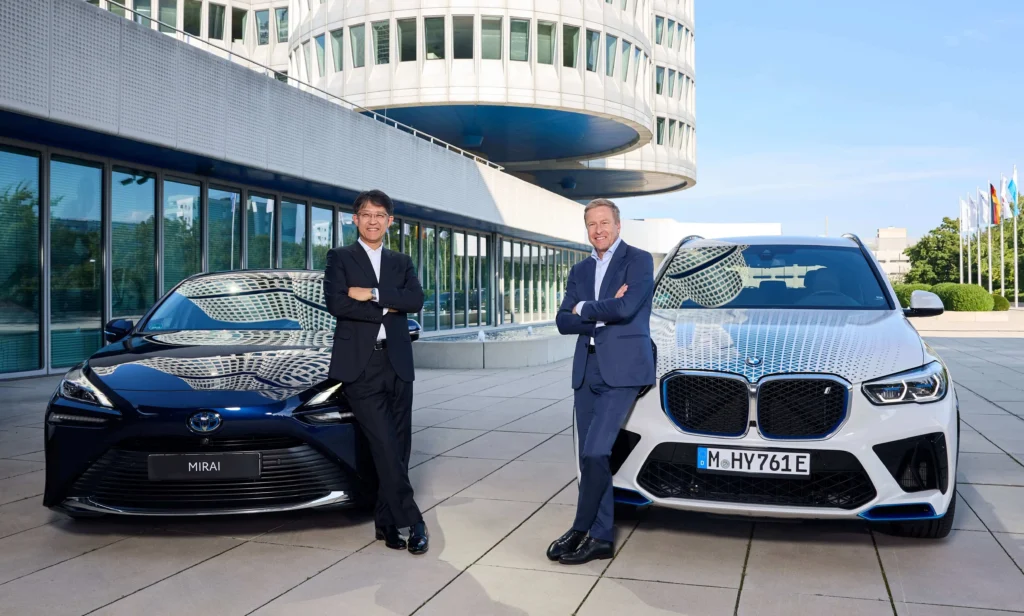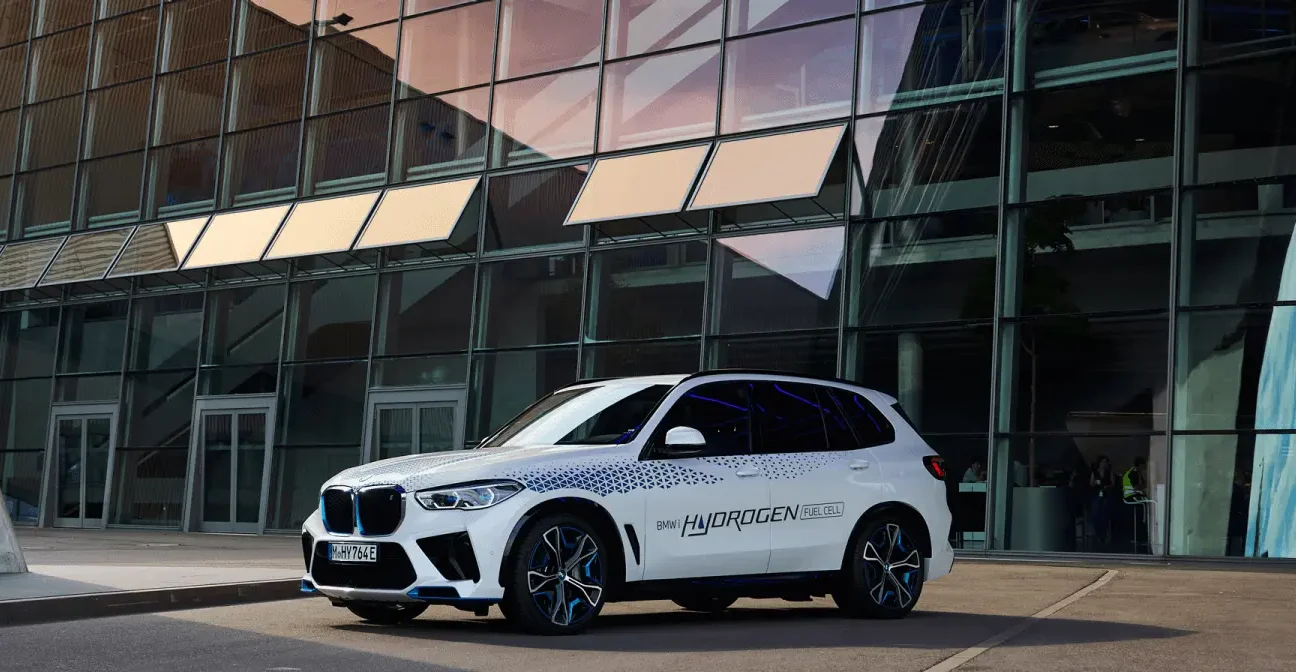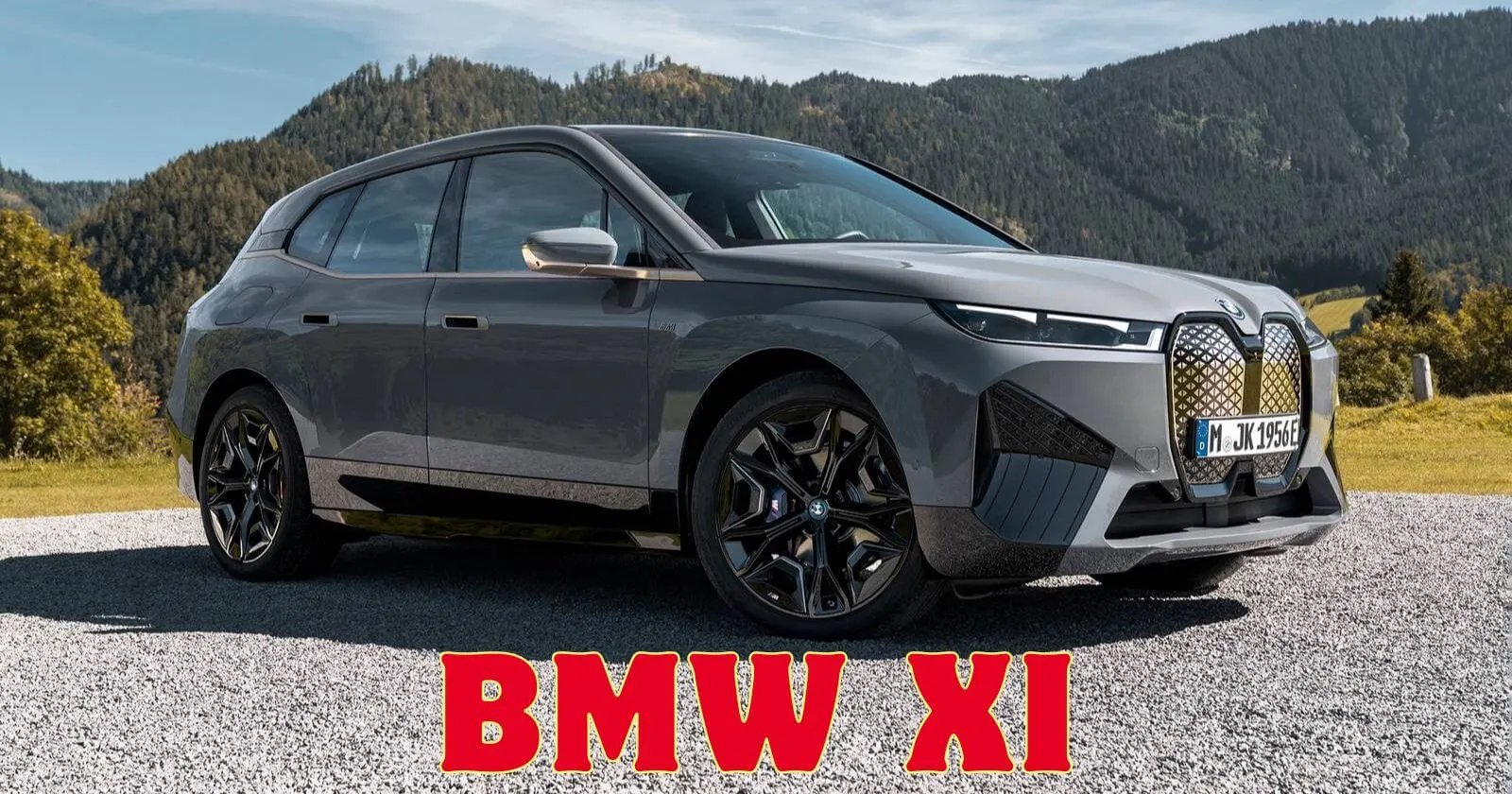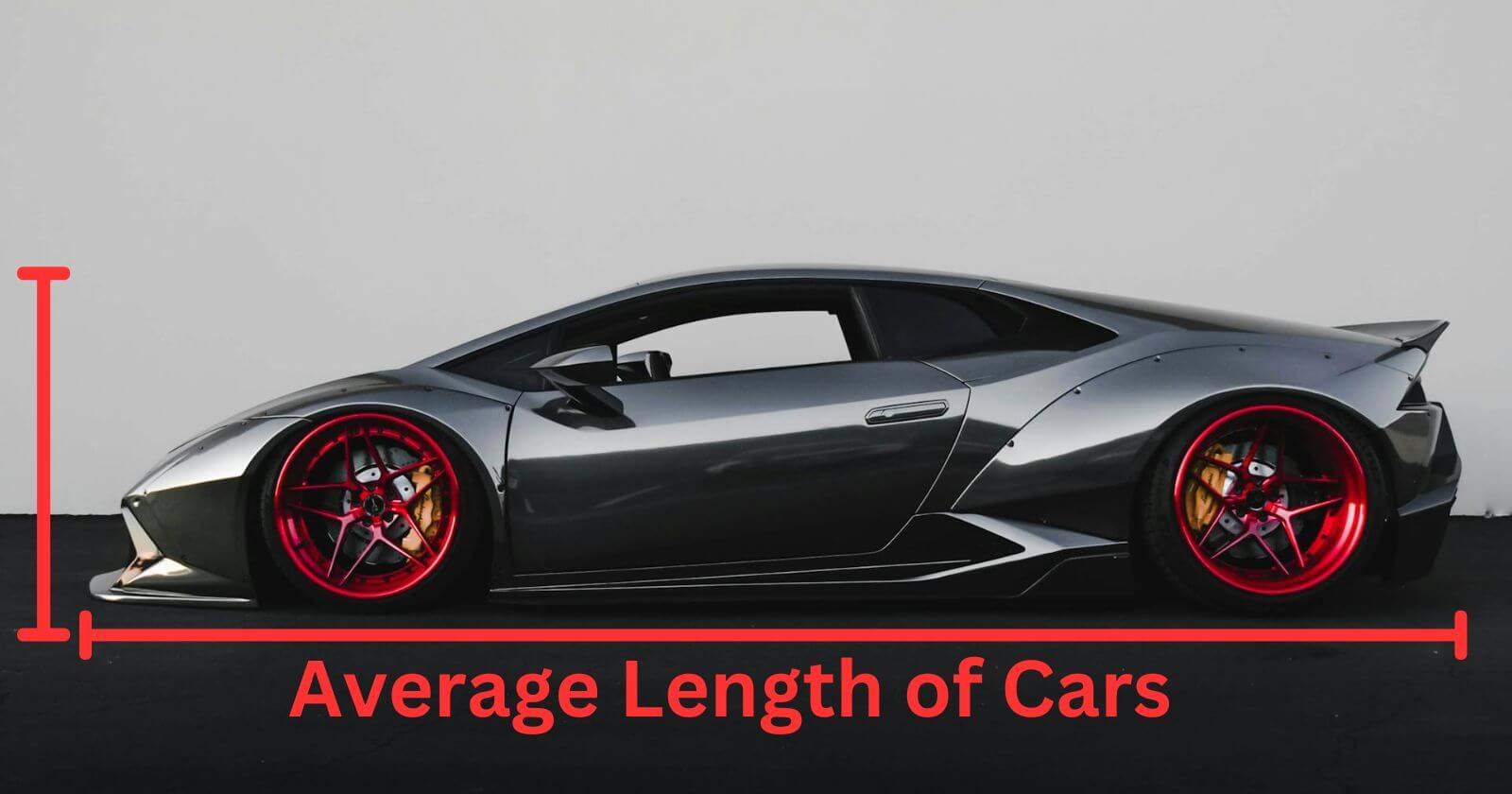BMW
The global automotive industry is witnessing a monumental shift towards more sustainable energy solutions, and BMW is at the forefront of this movement. In a significant announcement, the BMW Group revealed plans to launch its first-ever series production Fuel Cell Electric Vehicle (FCEV) in 2028, marking a major milestone in the development of zero-emission mobility. This move is part of BMW’s ongoing efforts to diversify its range of all-electric powertrain options while demonstrating its commitment to sustainable and innovative mobility solutions.
The BMW Group’s venture into hydrogen-powered vehicles is not a solo journey. In collaboration with Toyota Motor Corporation, both automotive giants are pooling their technological expertise and innovative strength to bring the next generation of fuel cell powertrain technology to the market. This partnership underscores the shared vision of both companies in advancing the hydrogen economy and positioning hydrogen as a key energy carrier for the future.
BMW and Toyota: A Powerful Collaboration

BMW
The collaboration between BMW and Toyota Motor Corporation has been over a decade in the making, and this latest announcement marks the deepening of their partnership. Both companies share a common philosophy known as “technology openness” and a “multi-pathway” approach to achieving carbon neutrality. By embracing multiple technologies and powertrain solutions, BMW and Toyota ensure that customers have a diverse range of environmentally friendly mobility options.
The significance of this collaboration was emphasized by Oliver Zipse, Chairman of the Board of Management of BMW AG, who described the upcoming FCEV launch as a historic moment. This marks a historic moment in the automotive industry: the debut of the first series production fuel cell vehicle from a global premium manufacturer,” said Zipse. “Hydrogen-powered and fueled by our collaborative efforts, this vehicle highlights the role of technological innovation in shaping the future of mobility.
Koji Sato, President and Member of the Board of Management of Toyota Motor Corporation, echoed Zipse’s sentiments, highlighting the importance of shared values between the two companies. “We’ve established that both BMW and Toyota share a deep passion for automobiles and a commitment to ‘technology openness’ and a ‘multi-pathway’ strategy for achieving carbon neutrality,” stated Sato. He also noted that the partnership extends beyond vehicle development to include efforts in hydrogen infrastructure and the promotion of a hydrogen society.
Fuel Cell Electric Vehicles: A New Chapter in Sustainable Mobility
Fuel Cell Electric Vehicles (FCEVs) represent a promising addition to the portfolio of electric vehicles, offering a range of benefits that complement battery electric vehicles (BEVs). While BEVs are well-suited for short to medium distances and urban commuting, FCEVs offer significant advantages for longer journeys and heavy-duty applications, where quick refueling times and extended range are critical.
The core of the FCEV technology lies in the hydrogen fuel cell, which converts hydrogen into electricity through an electrochemical process. The only byproduct of this process is water vapor, making FCEVs a truly zero-emission solution. Unlike battery-powered vehicles that rely on charging infrastructure, FCEVs can be refueled at hydrogen stations in a matter of minutes, providing a more convenient experience for drivers.
For BMW, introducing hydrogen-powered vehicles is a natural evolution of its existing electric drive technologies. The company has been a pioneer in the development of battery electric vehicles, plug-in hybrids, and other sustainable mobility solutions. By incorporating hydrogen fuel cells into its lineup, BMW is offering customers an additional option for zero-emission driving while reinforcing its commitment to providing a broad range of powertrain technologies.
BMW’s Hydrogen-Powered Vision for 2028
BMW’s journey toward hydrogen-powered mobility has been years in the making. The company has been actively testing its iX5 Hydrogen pilot fleet across the globe, gathering valuable data and insights to refine its hydrogen technology. The successful performance of these pilot vehicles has laid the groundwork for the series production FCEV model, which will be launched in 2028.
BMW’s first hydrogen-powered production vehicle will be integrated into the company’s existing portfolio, meaning that customers can expect to see hydrogen fuel cell variants of popular BMW models. This approach allows BMW to offer its customers the flexibility to choose between battery electric, plug-in hybrid, and hydrogen-powered vehicles, depending on their specific needs and preferences.
What makes FCEV technology particularly attractive is its potential to complement existing electric vehicle technologies. Hydrogen fuel cells are especially well-suited for vehicles that require long ranges and fast refueling, making them ideal for commercial vehicles and heavy-duty applications. By offering FCEV options alongside battery electric vehicles, BMW is addressing a wider range of customer needs while contributing to the broader goal of reducing carbon emissions in the transportation sector.
Driving the Hydrogen Economy Forward
The BMW Group and Toyota Motor Corporation’s commitment to hydrogen extends beyond the development of vehicles. Both companies recognize that the success of hydrogen-powered mobility depends on the availability of a robust hydrogen refueling infrastructure. As such, they are working closely with partners across various industries to expand the network of hydrogen refueling stations and promote the adoption of hydrogen as a clean energy carrier.
Hydrogen is often referred to as the “missing piece” in the electric mobility puzzle. While battery electric vehicles are suitable for many applications, hydrogen offers a solution for scenarios where batteries may not be the most efficient or practical option. For example, hydrogen can be stored and transported more easily than electricity, making it a valuable asset for balancing renewable energy supply and demand.
In addition to its role in the transportation sector, hydrogen has the potential to revolutionize other industries, including energy storage, industrial processes, and even heating. BMW and Toyota are advocating for a conducive policy framework to support the early-stage development of the hydrogen economy. This includes encouraging governments and investors to create favorable conditions for hydrogen infrastructure projects and ensuring the economic viability of FCEV technology.
A Hydrogen-Powered Future
As BMW prepares to launch its first series production Fuel Cell Electric Vehicle in 2028, the automotive world is poised to enter a new era of sustainable mobility. The collaboration between BMW and Toyota marks a significant step forward in the development of hydrogen-powered vehicles and the broader hydrogen economy. By offering customers a diverse range of zero-emission powertrain options, BMW is not only shaping the future of mobility but also contributing to the global effort to achieve carbon neutrality.
The future of transportation is undoubtedly electric, but it will also be powered by hydrogen—a fuel that promises to transform the way we think about energy, mobility, and sustainability.





